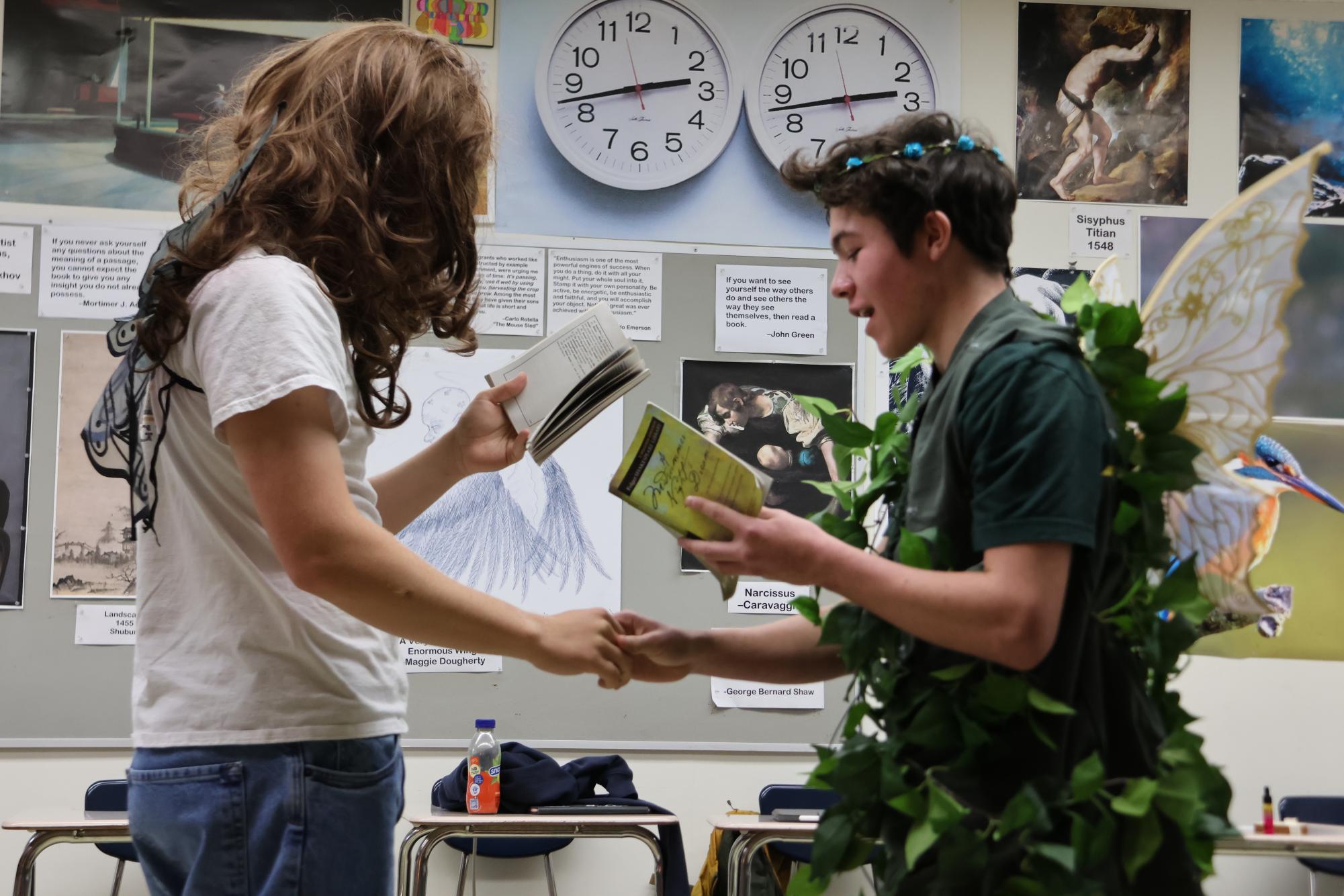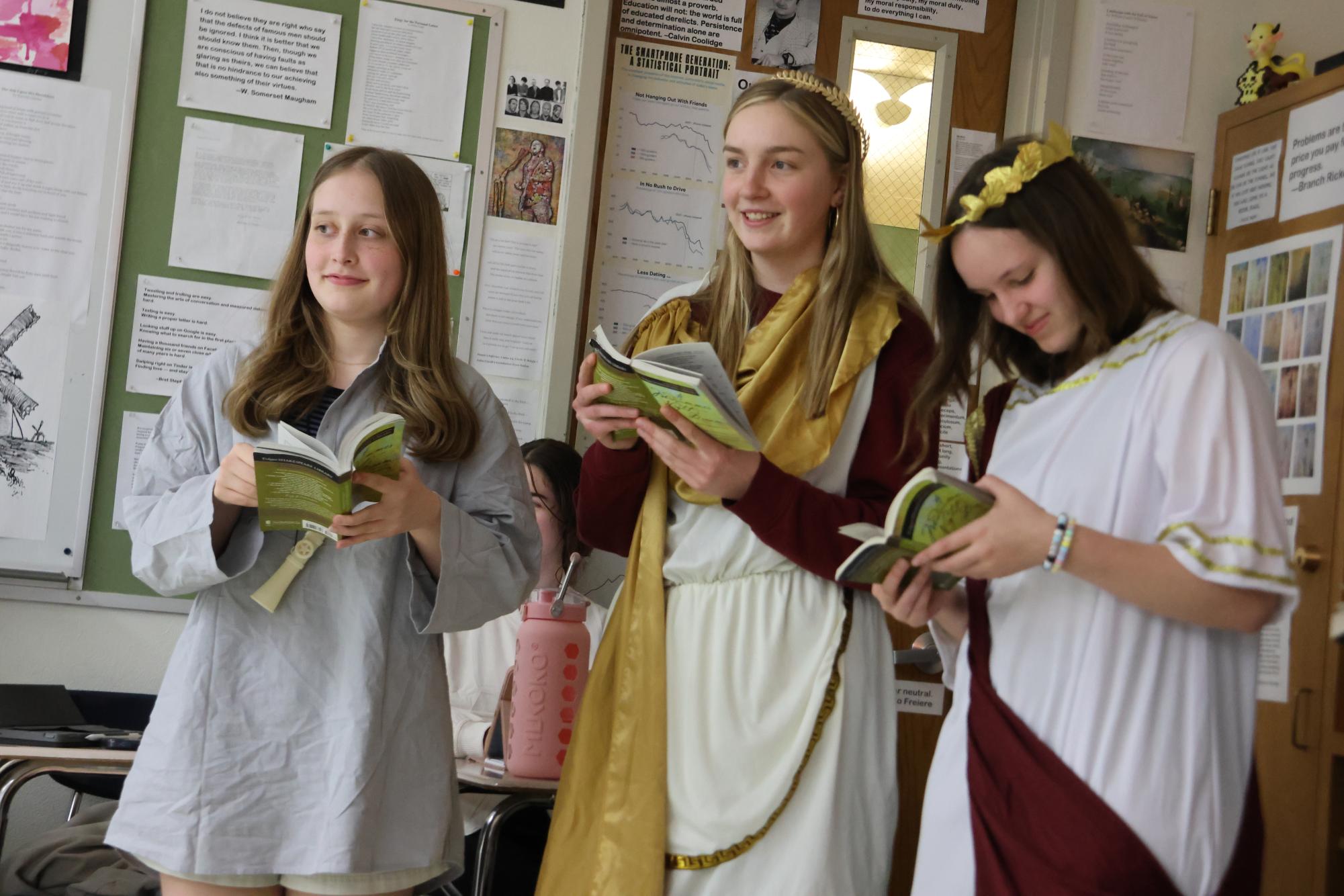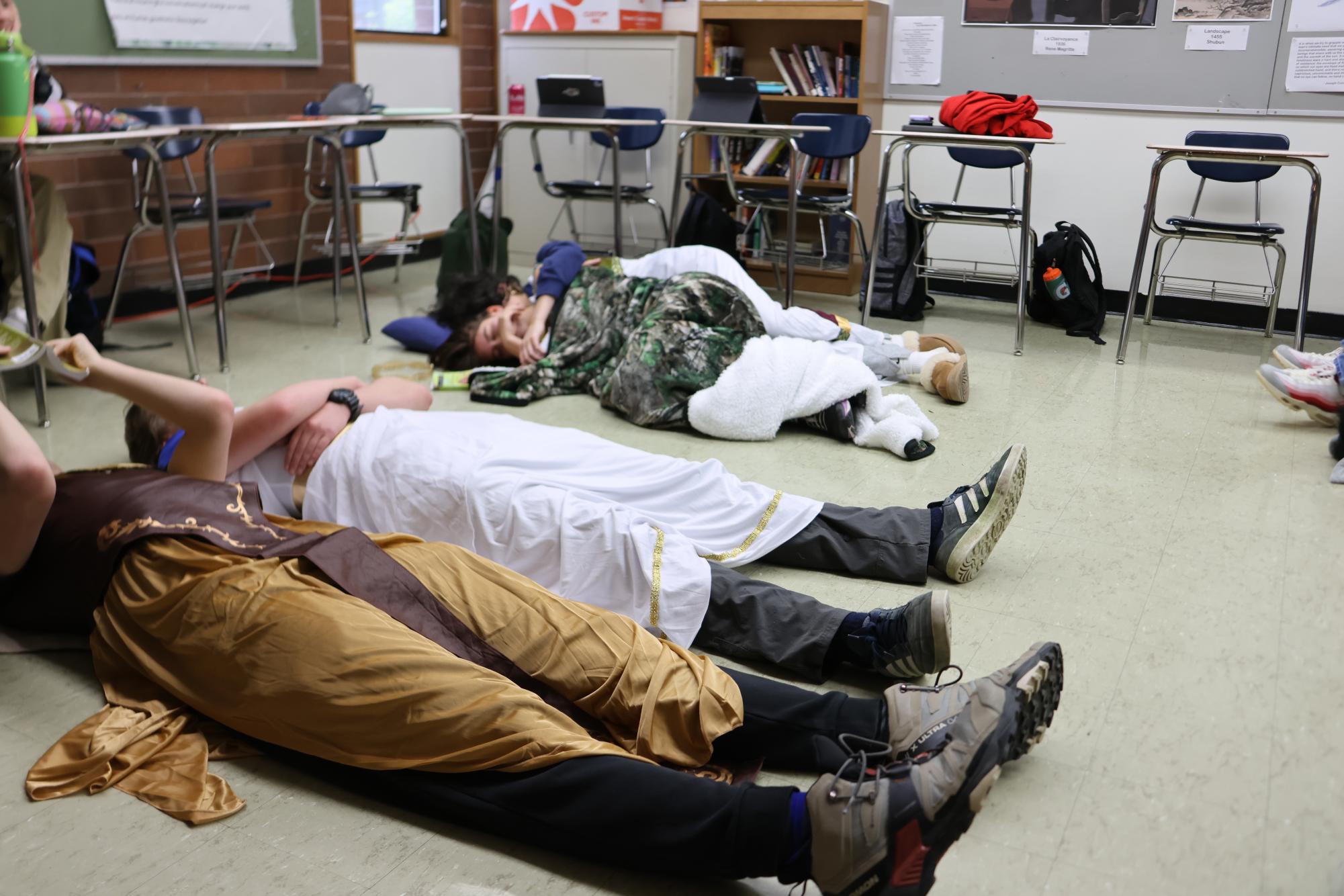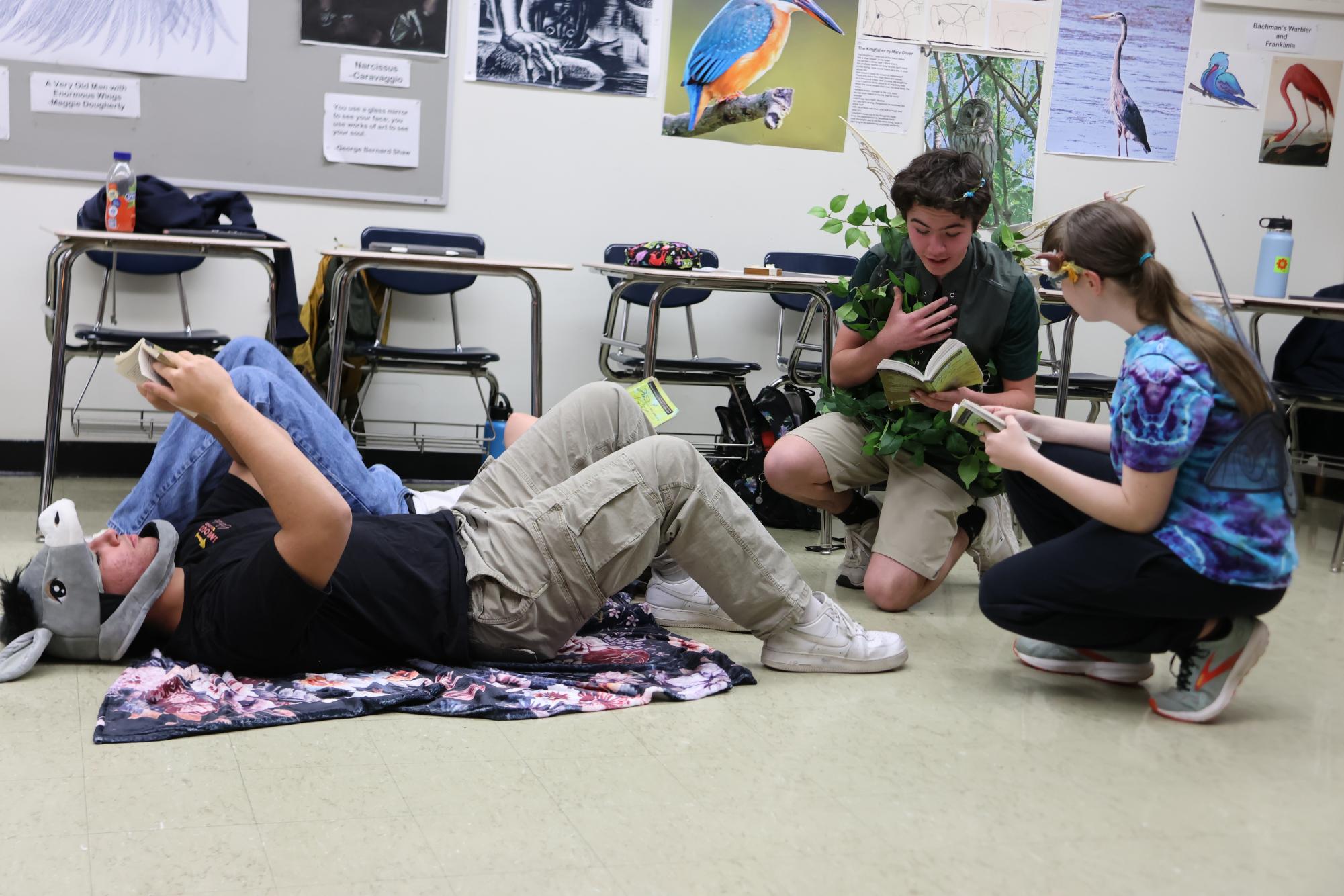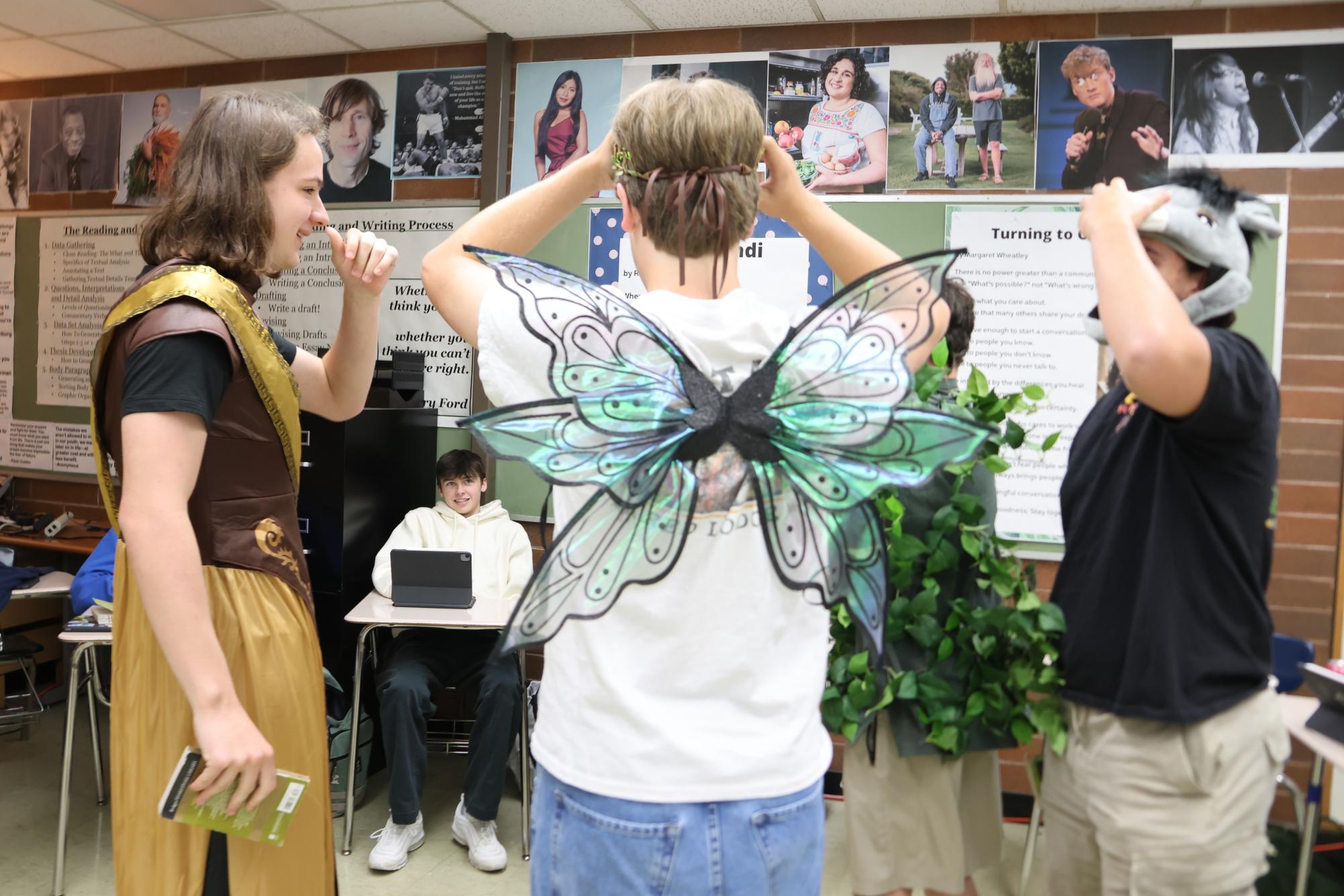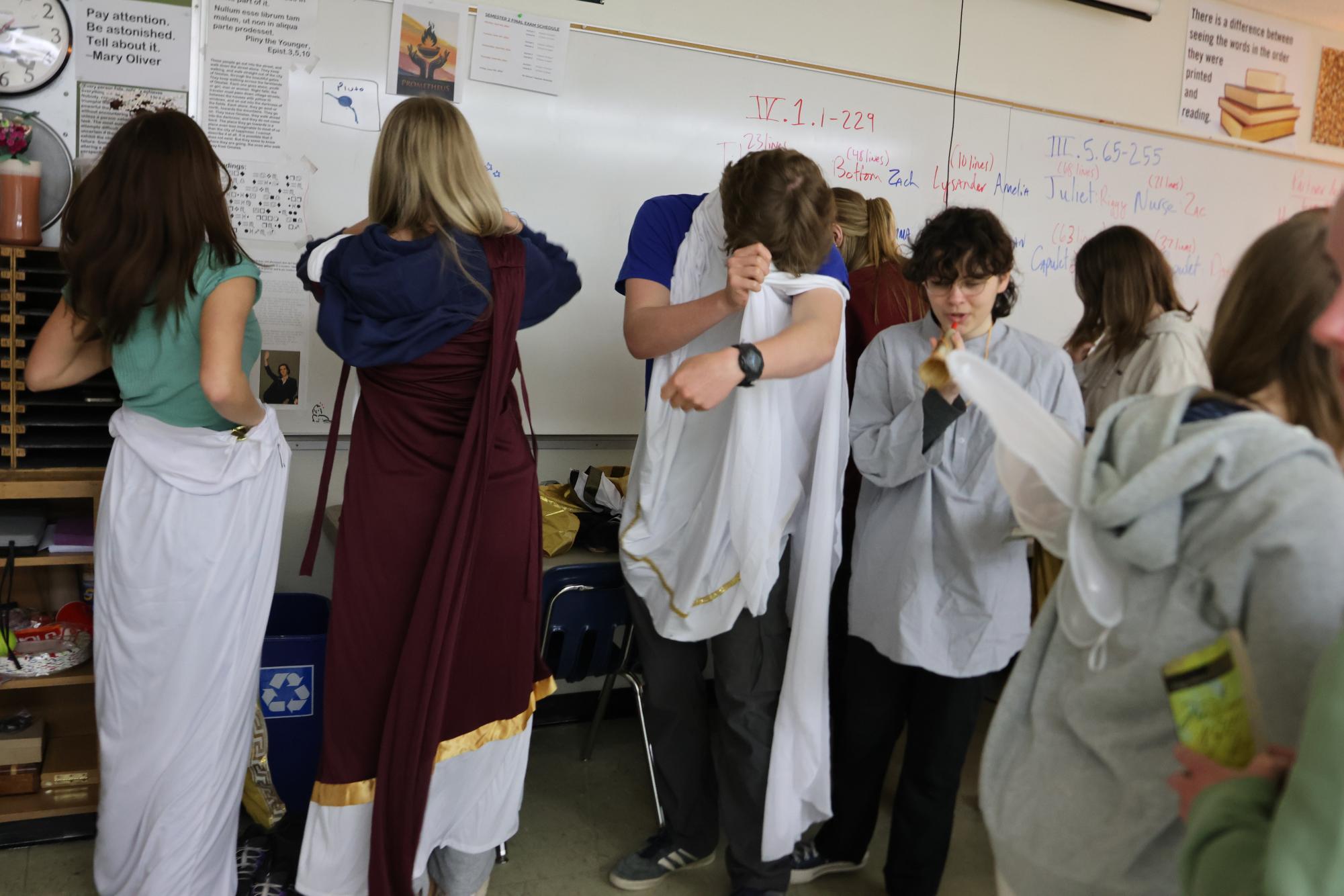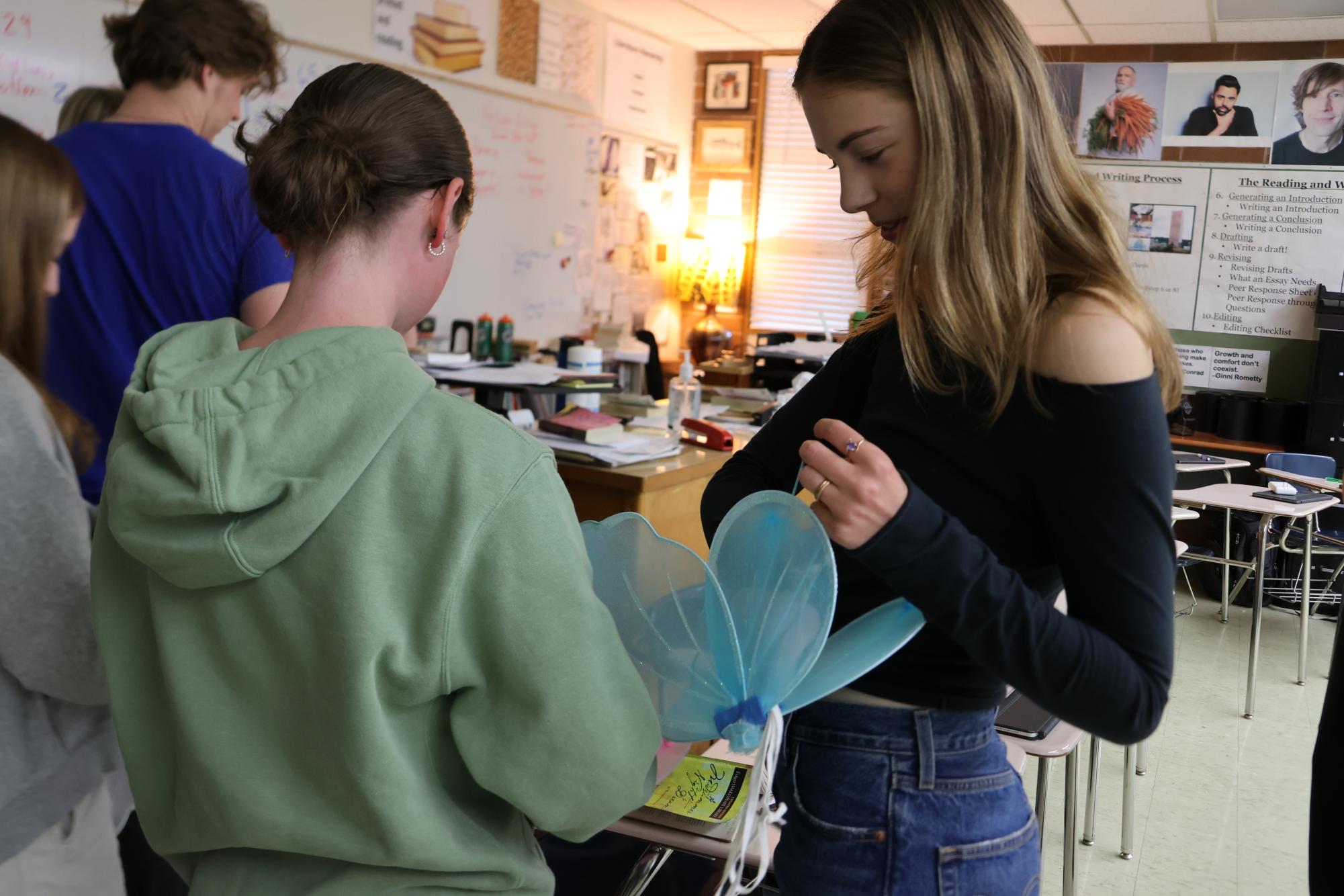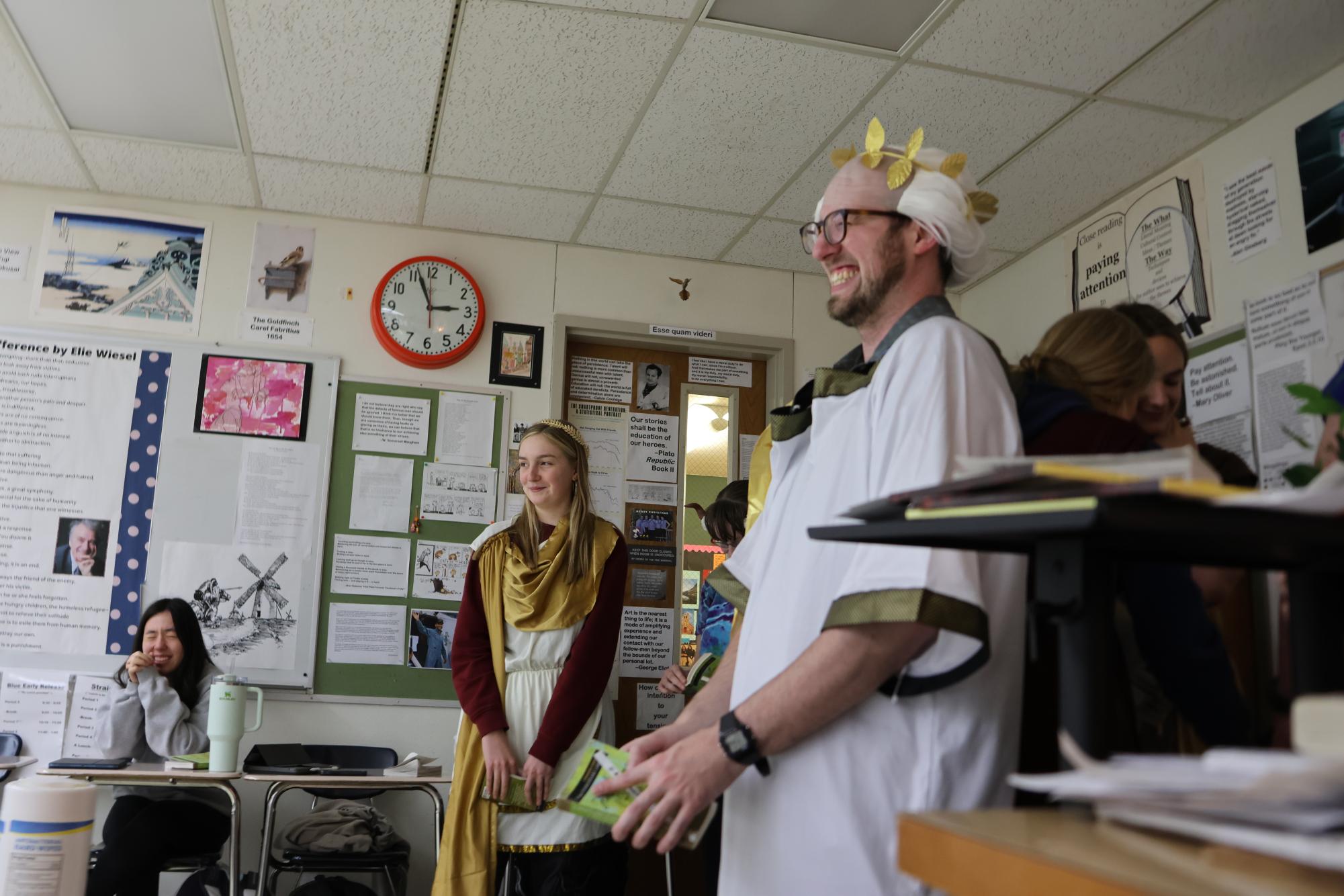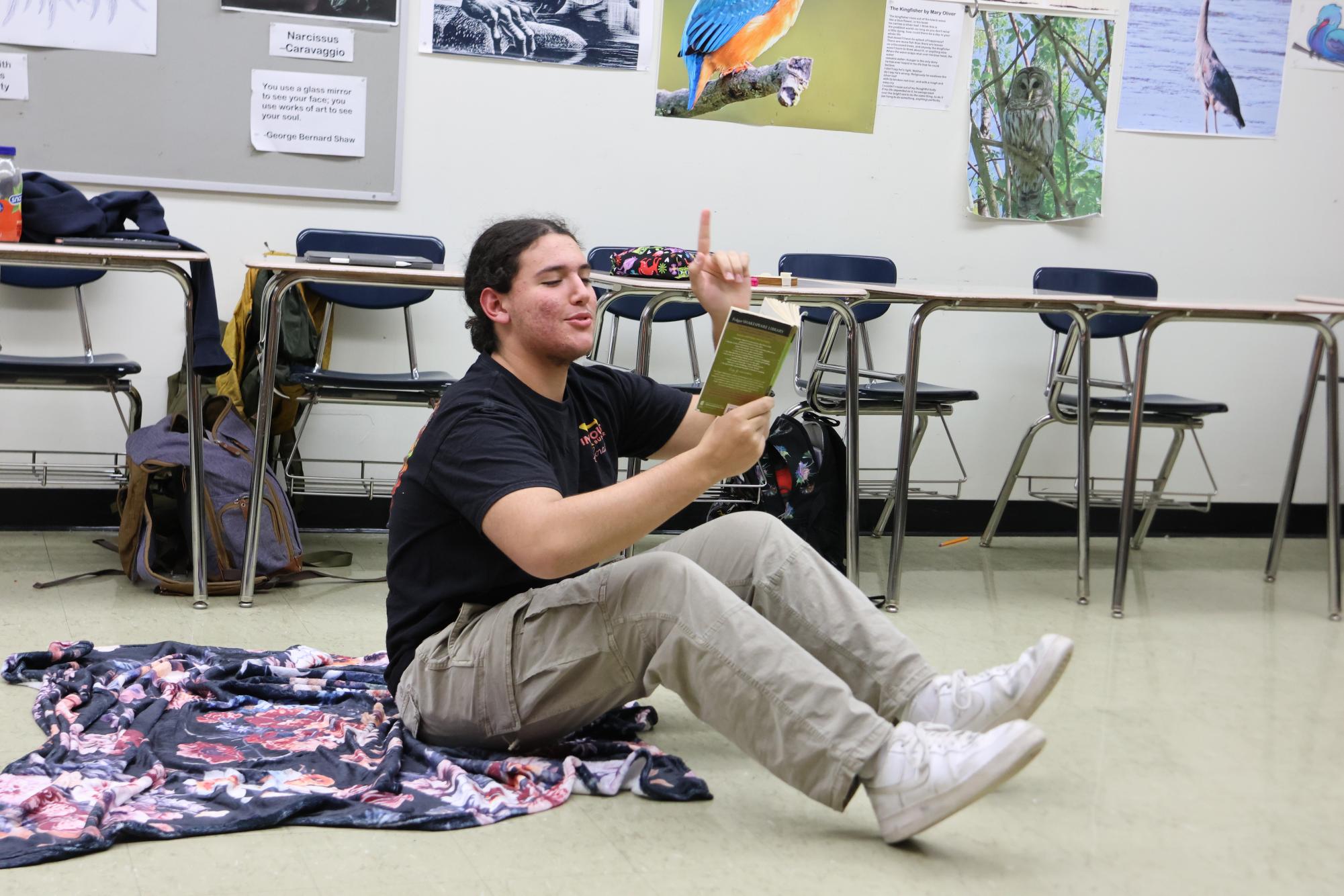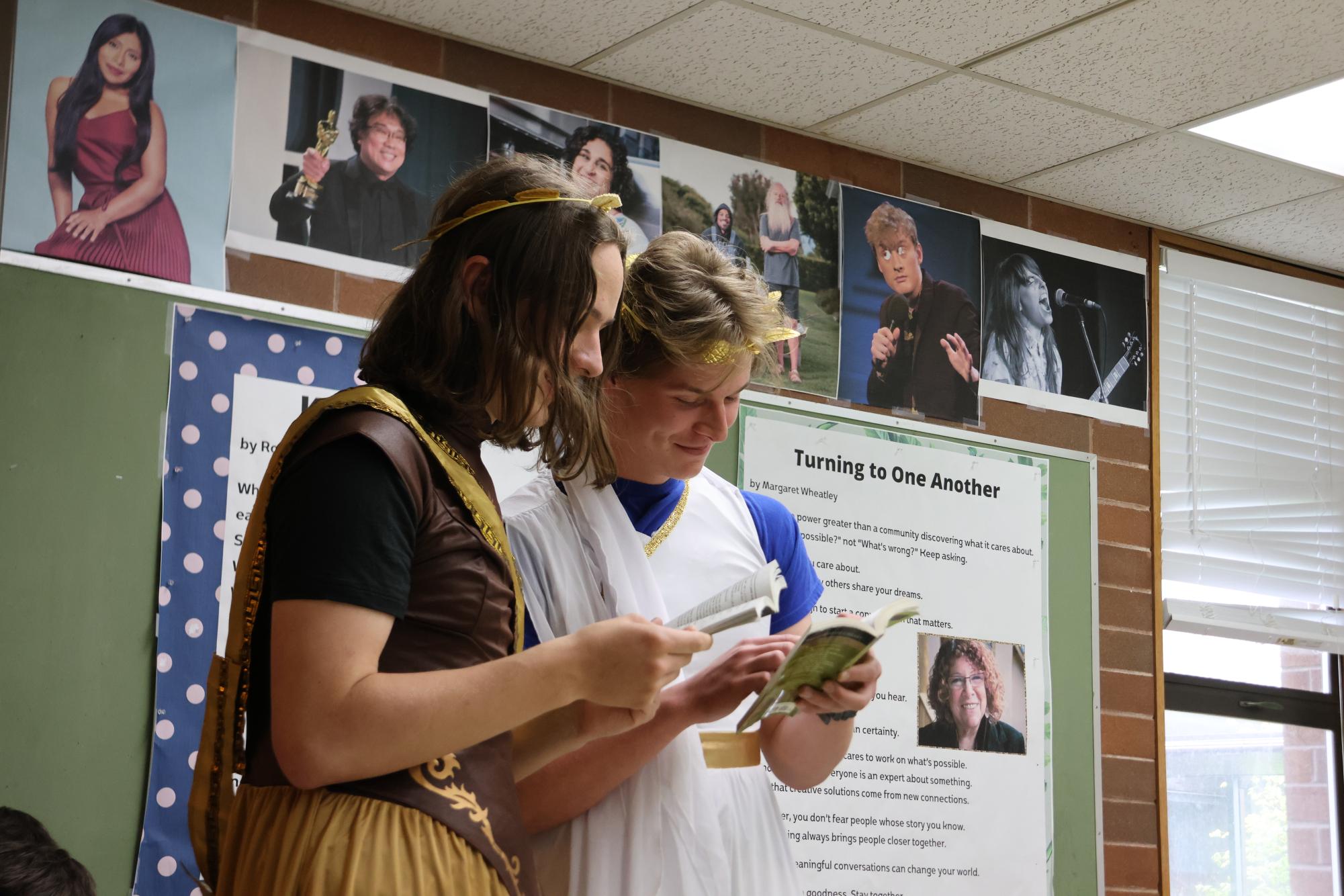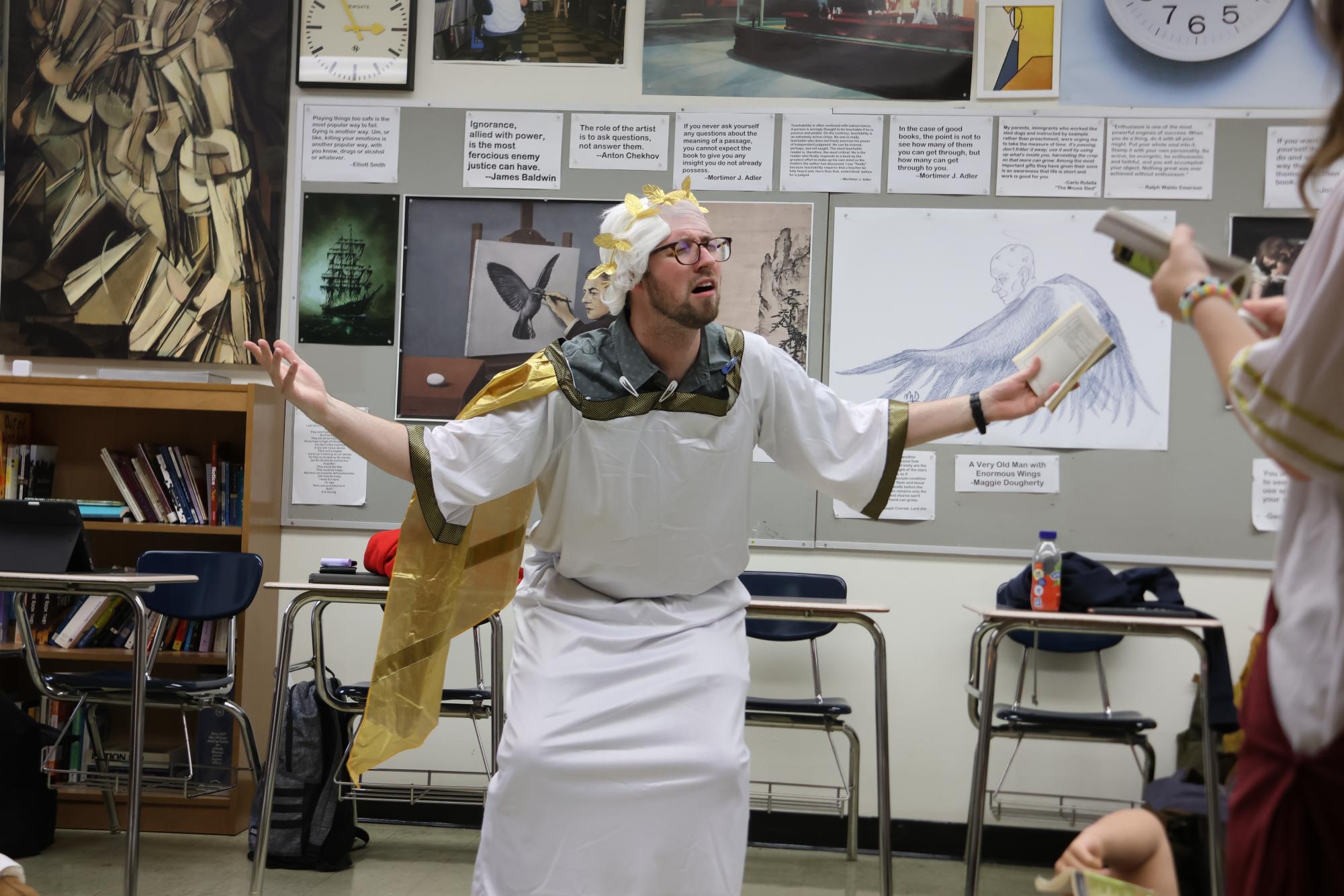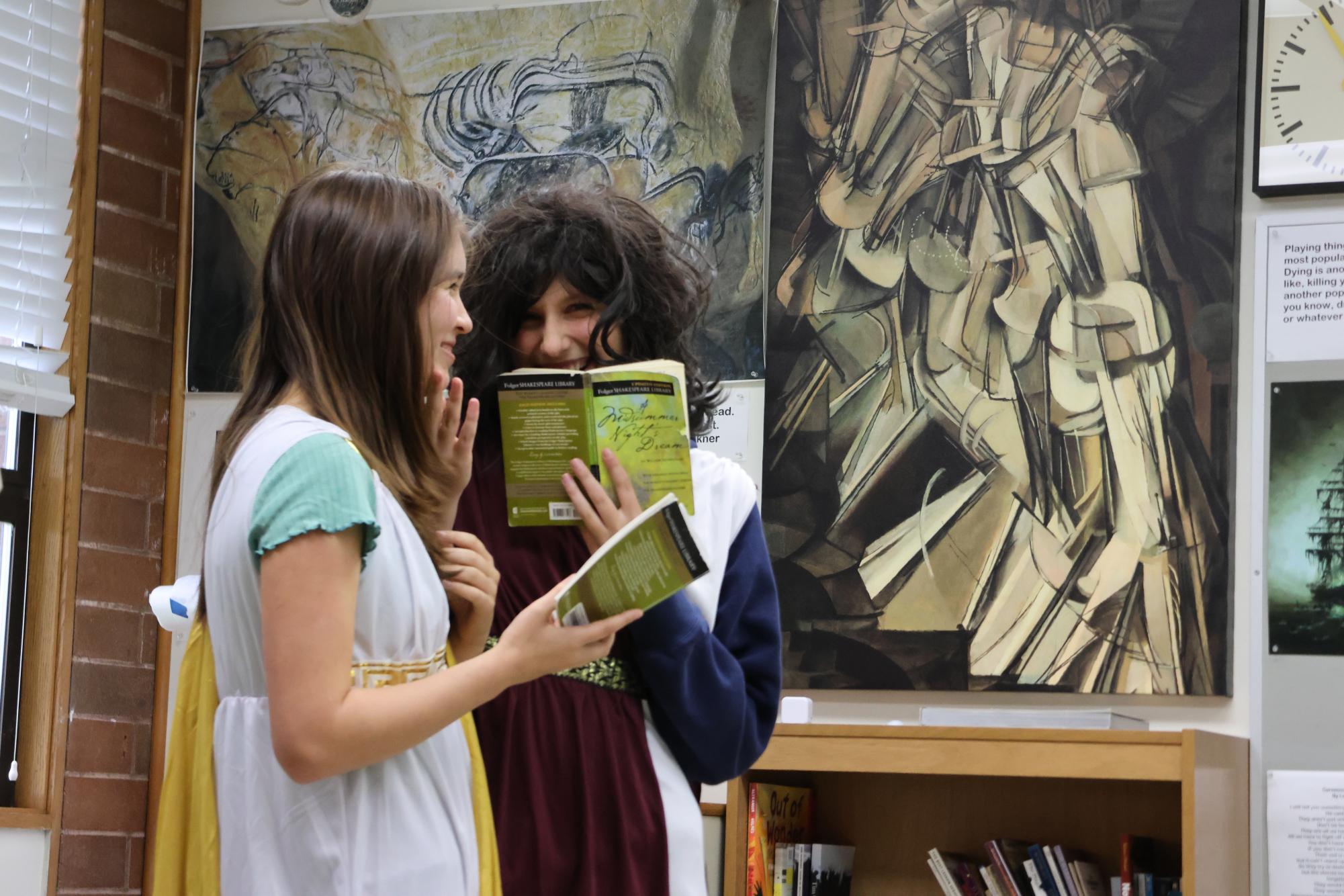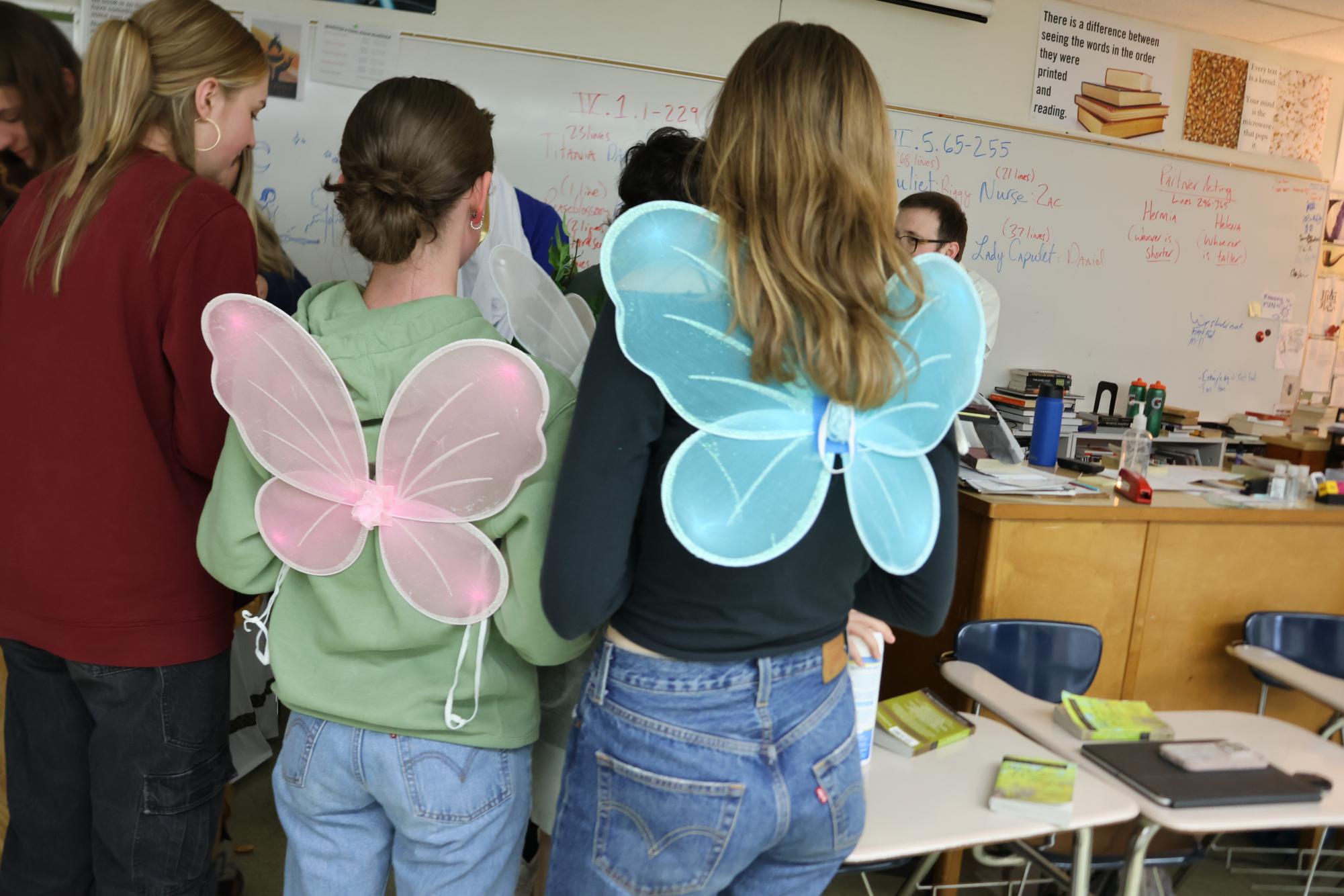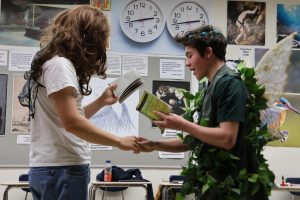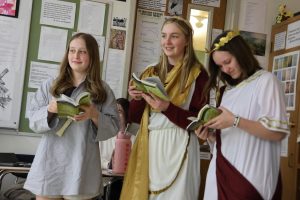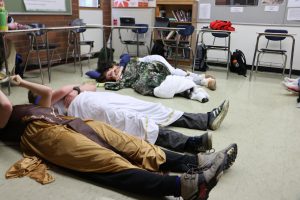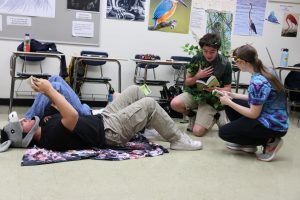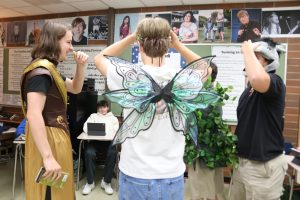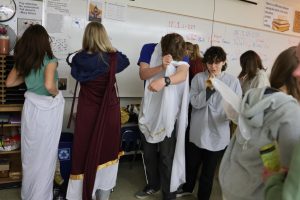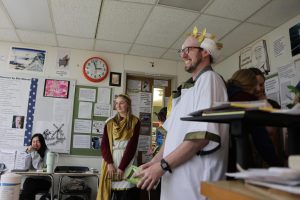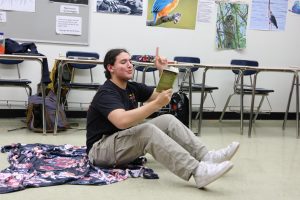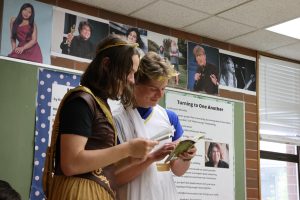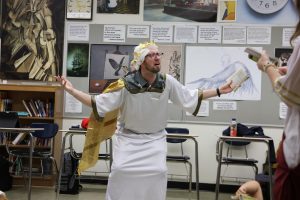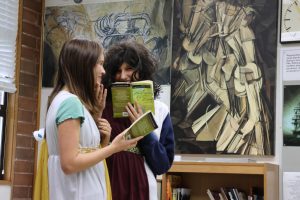For English teacher Mr. Greg Larson, Shakespeare is something that he holds close to his heart. “I think that he just really understood humans at a very high level,” Mr. Larson said.
With Mr. Larson’s help, his sophomore Honors English II students now get to share his love for the playwright as they read and act out the book A Midsummer Night’s Dream, written by William Shakespeare in the 1590s, while learning about his impact on society and significance as a writer.
Mr. Larson chose this unit for his students because he felt like it perfectly captures the sophomore experience and the book’s core theme of losing yourself, saying that it relates both to some of his experiences and those that he has witnessed among his students.
“Some of the core themes in the play about losing yourself in particular relate a lot to some of the things that I see and experienced in sophomore life,” he said.
Mr. Larson recognizes the challenges that go along with understanding Shakespeare’s writing, such as the old language and some outdated words. However, he believes that once the reader can get past all of that, they unlock the ability to relate to the characters and learn new things about themselves as well.
“It gets students doing really challenging work of analyzing text and reading closely, but it also gives them perspective on their own lives and prepares them to see more of humanity as they move through the world,” he said.
In general, Mr. Larson really appreciates the characters Shakespeare develops because they capture the essence of humanity through their emotions and experiences within their plays. He explains how it can be difficult to express your feelings, so sometimes it’s easier to act them out in a comfortable way instead.
“Sometimes it can be really hard to talk about some of these things,” Mr. Larson said. “By putting on a costume and playing a character, you can actually work through something that you’re experiencing,” he said.
Although it might seem as though Mr. Larson’s students are merely talking about fairies and magic, it takes hard work and dedication for them to create an environment where everyone feels comfortable expressing themselves.
“Once we’ve kind of built a classroom culture where we can take some risk and ask some pretty big, complicated questions and talk about things that are really hard to talk about, all of a sudden the magic of this unit gets unlocked and we’re able to talk about really challenging things without talking about them directly,” he said.
Due to the constantly-shifting social climate of teenagers and the world in general, Mr. Larson is unsure of whether this unit would be well-suited to next year’s class of sophomores.
“Would I love to teach this play again? Absolutely. I love this play. But I try not to just teach what I like and what I want,” Mr. Larson said. “I try to teach what students are signaling would be useful and worthwhile.”
Despite his doubts about the future of this unit, Mr. Larson is quite proud of it and the students that executed it so enthusiastically.
“I was consistently and delightfully surprised … When acting is great, when students know what they’re saying and feel what they’re saying, then acting can really be a special learning experience. I think — as hard as I pushed kids — we consistently got there where students were excited to act or excited to see their peers act,” Mr. Larson said.
This is a unit that Mr. Larson finds really fun, and he’s helping his students realize how impactful it is. Mr. Larson says that Shakespeare has had a lot of cultural influence for a long time and now he’s seeing how his students are currently being impacted.
“I don’t think he’s going away anytime soon,” Mr. Larson said.


